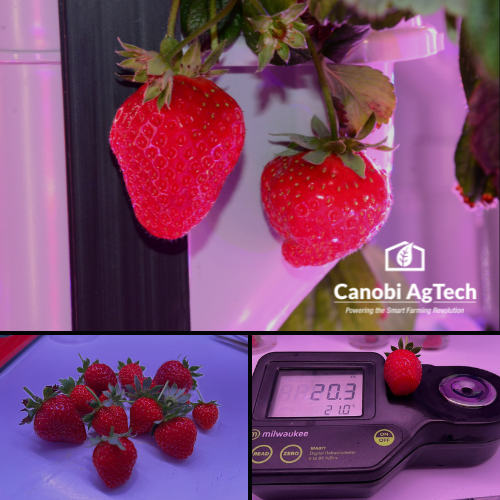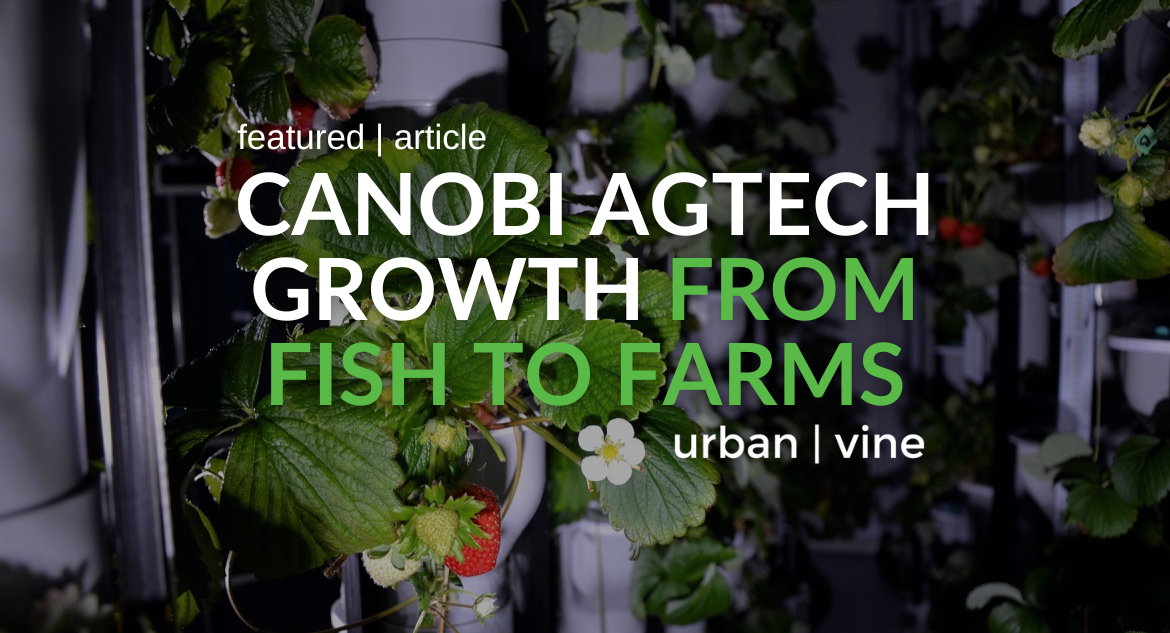Canobi CEO Robin Vincent was excited to speak with the writers of Urban Vine magazine for a feature profile. Urban Vine was founded in 2016 with the goal of spreading knowledge about the indoor farming industry. To accomplish this, the writers have already interviewed more than one hundred companies from North America, Europe, and Asia. Robin was honored to be considered among this list of Thought Leaders, which includes both industry professionals and academic experts. The interview touched on the origins of Robin’s interest in indoor farming, current trends in the industry, and the future of Canobi.
Robin discussed how his previous experience working with aquarium fish translated to indoor farming. In both industries, careful automation and nutrient balancing is essential for life to thrive. This expertise forms one of the three key components Robin believes makes Canobi’s system successful. By combining automation, monitoring, and management tools in one software system, Robin has brought something entirely unique to the indoor farming market. Another exceptional feature of the Canobi system is that it works with any growing system, allowing farmers to choose the system that works for them, rather than imposing one onto our customers.

In the interview, Robin also touched on a few trends he has seen in the indoor growing industry. Over the years, Canobi’s client base has shifted to focus more on food than on cannabis. In particular, Robin noted the popularity of strawberries among indoor growers. At Canobi, we have been doing a variety of trials to perfect growing recipes for this popular, profitable crop so our customers can make the most of this market opportunity.
Robin also discussed how a shift toward modular systems which incorporate redundancy more efficiently will result in improvements in container farming. Most single container systems do not have the space for redundancy, despite frequently relying heavily on systems working non-stop. This has resulted in too frequent issues where single points of failure can disrupt entire systems. However, as manufacturers shift toward modular systems, this allows not only more comfortable working spaces, but also increased redundancy. These types of changes, Robin believes, will help container farming become more secure and sustainable.
When discussing both the success of Canobi and its future, Robin highlighted the importance of having an excellent team for support and advice. Building a network of individuals in the company who can be relied on for open, transparent sharing is essential for the success of a business. Robin is incredibly pleased to have a reliable team which brings him both insights and advice. As Canobi grows, finding more individuals to build and improve this team is a priority.
Building strong relationships with our customers allows Canobi to deliver the best results both immediately and as our clients grow. Canobi’s goal is to be the partner our clients go to first when they face challenges or when they choose to expand. While our system scales up for large farming operations, we are always interested in smaller or startup growers. We work hard to gain our customer’s trust through honesty, reliability, and delivery.




